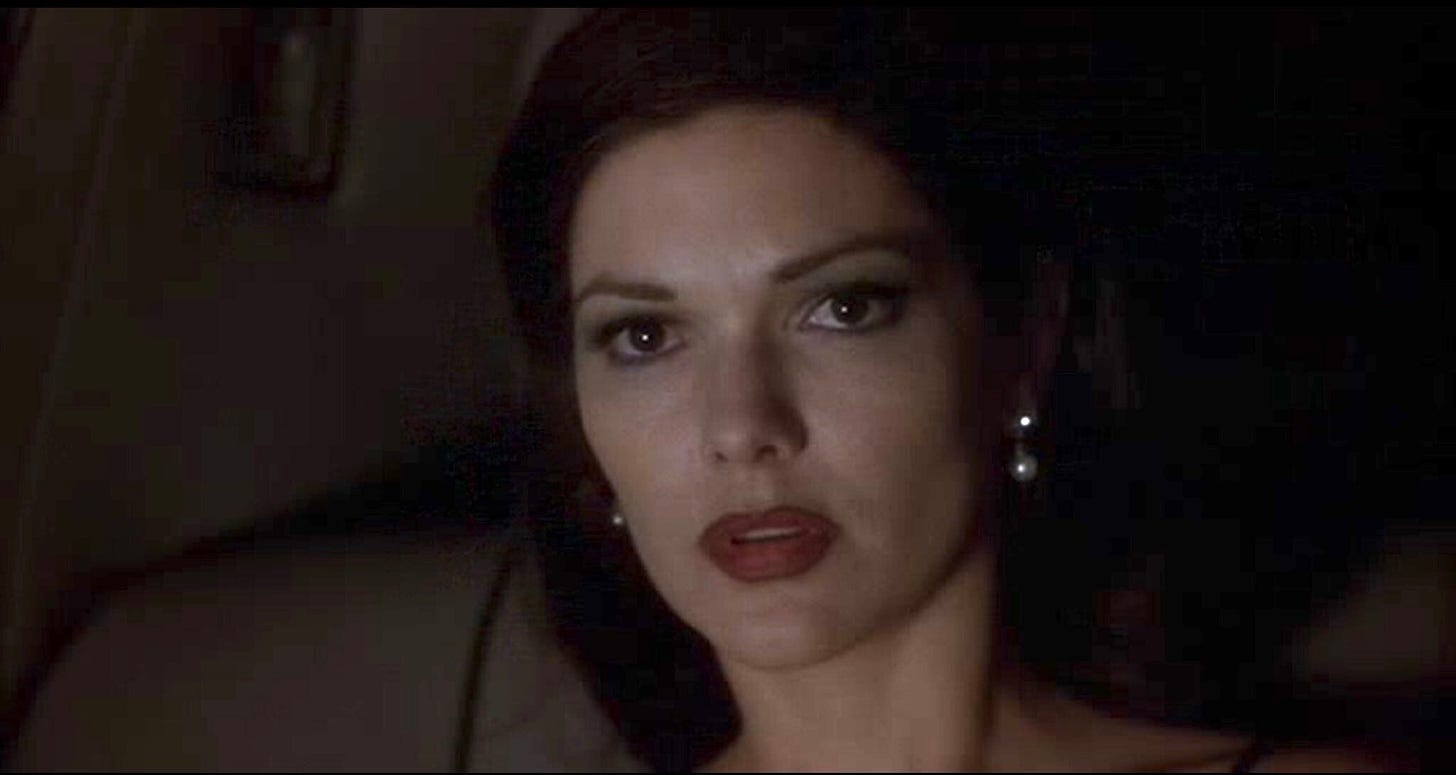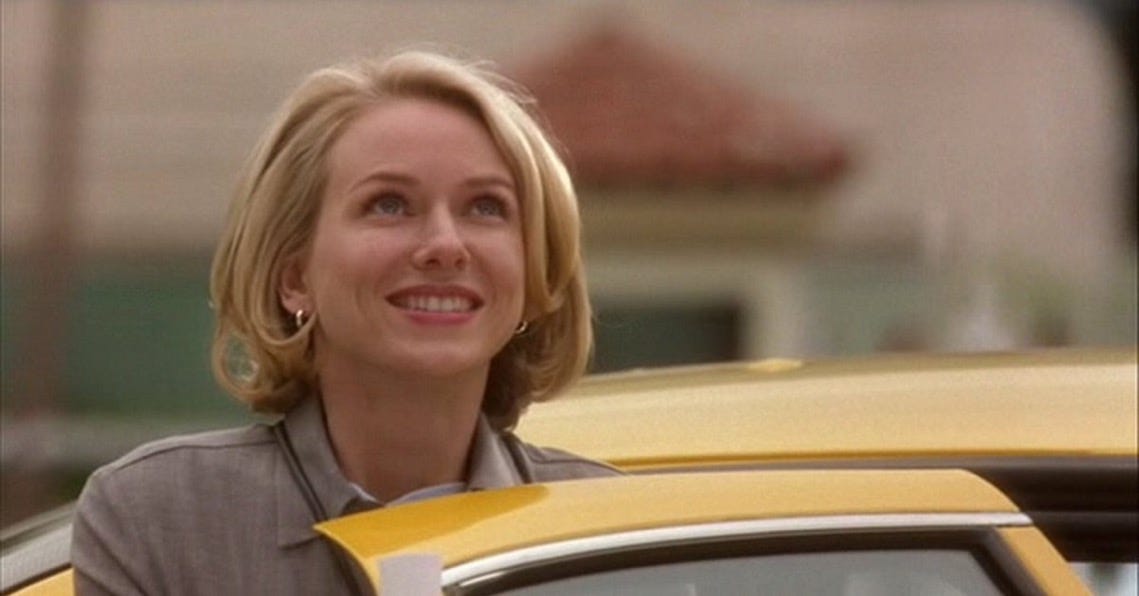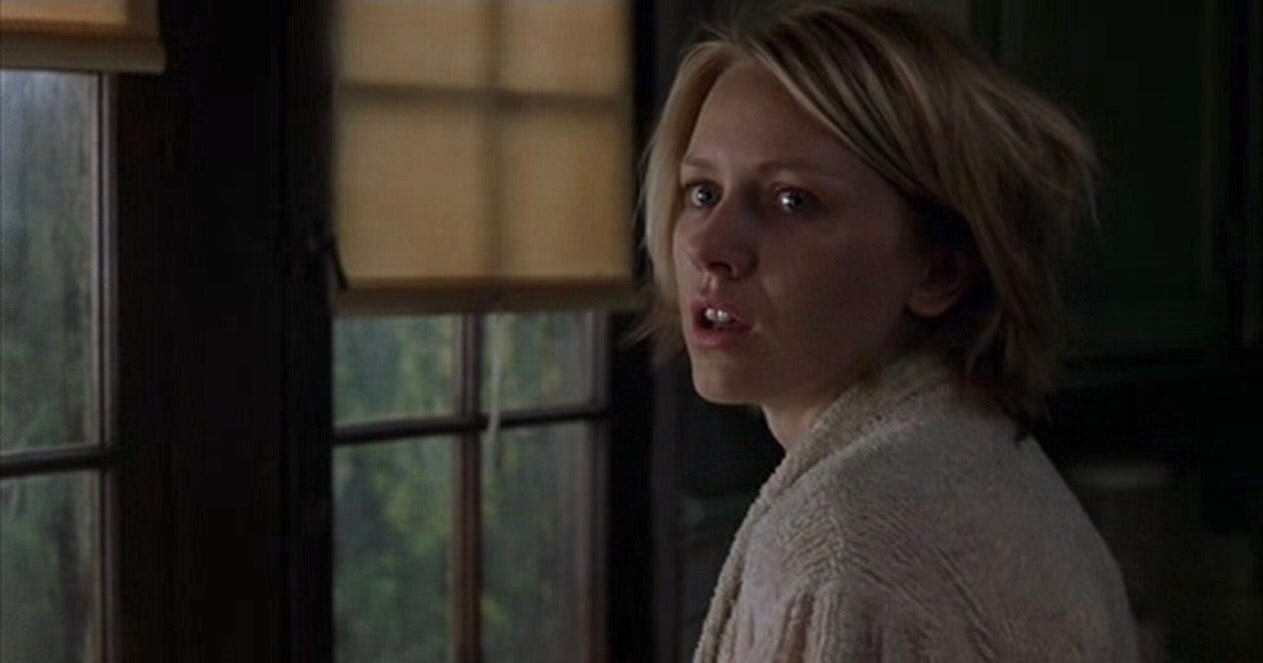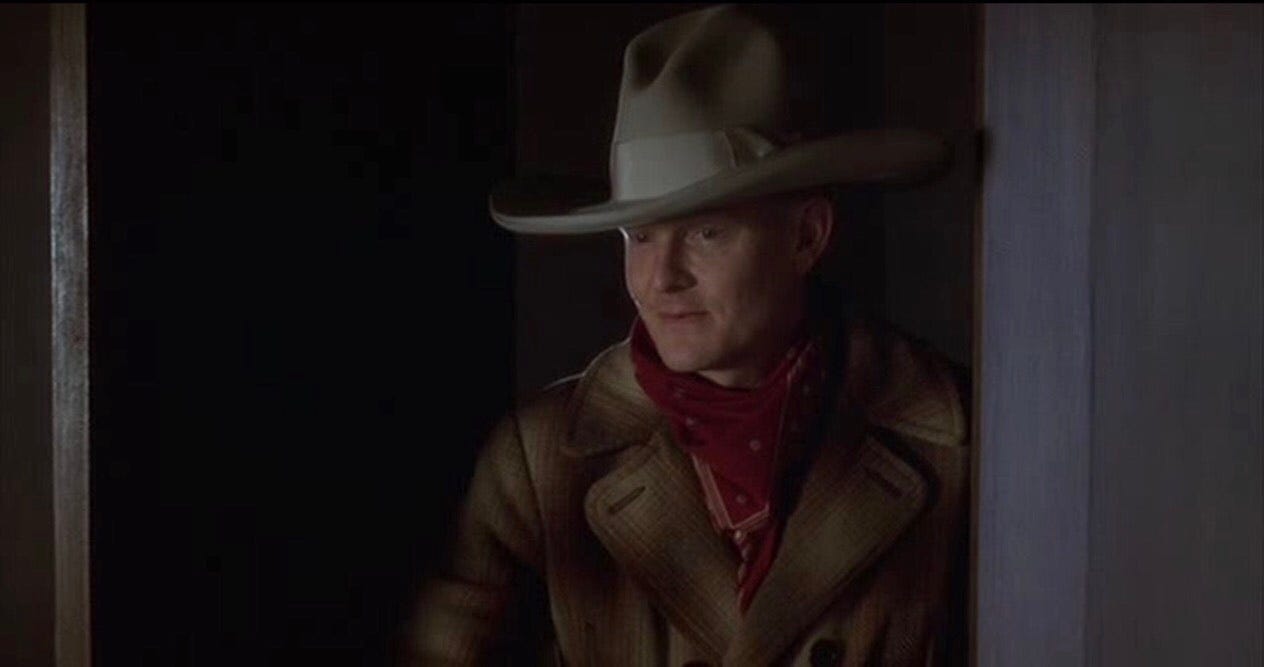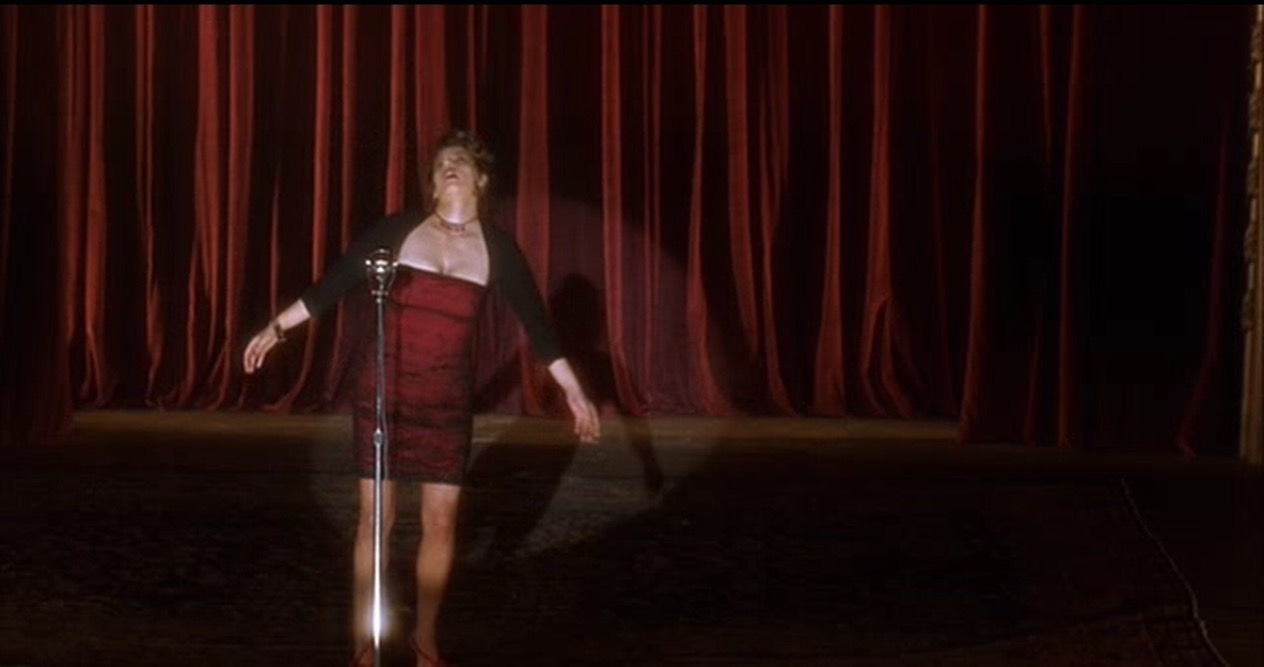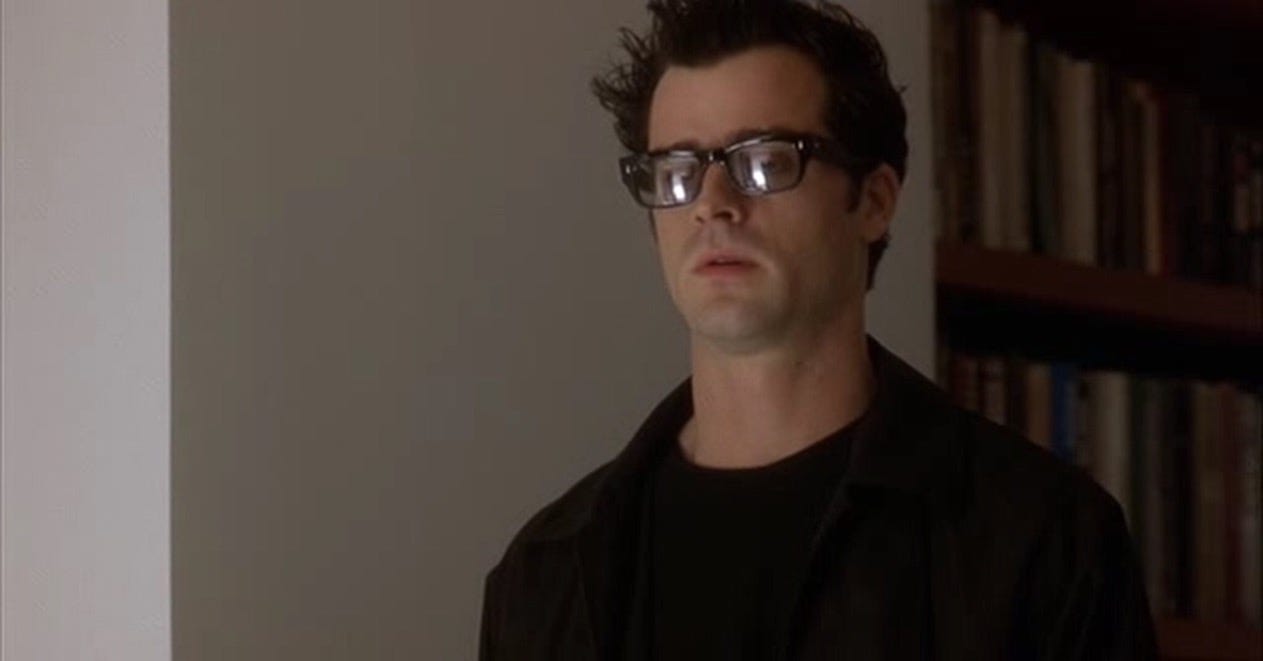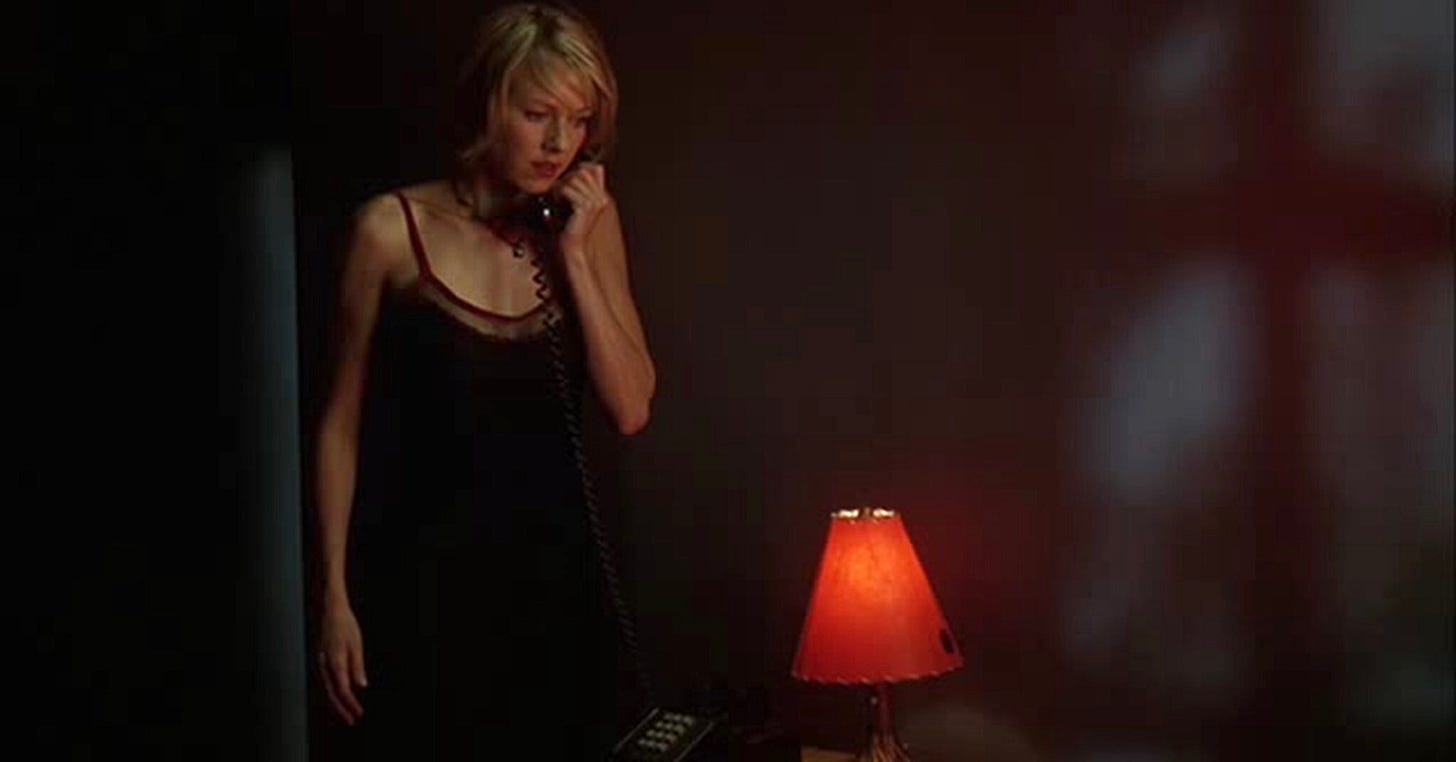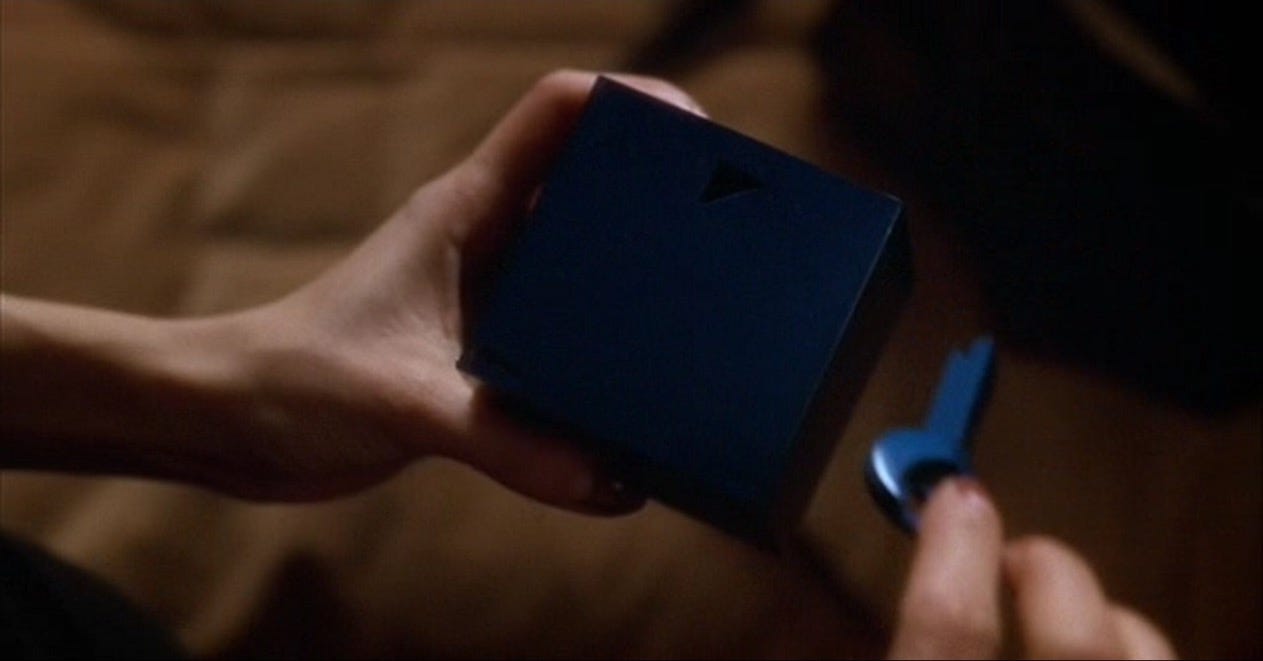#22 From the Twitter archives, part 7: Mulholland Drive
Revisiting Lynch’s masterpiece.
Oneiric
“What are you doing? We don’t stop here.” But David Lynch is very much a director who does stop here—at this little-visited corner of the cinematic map where narratives follow weird dream logics, and in Lynch’s case leave behind a tantalizing, haunting sense of deeper meaning.
Genius loci
Lynch has said that on Mulholland Drive (the road in the Hollywood hills) you can “feel the history of Hollywood.” By naming his 2001 feature after that road Lynch signalled, consciously or otherwise, his intention to make a psychogeographical work. In that endeavour he was uncommonly successful: Mulholland Dr. communicates a powerful sense of place.
Ontological
I find boring the typical psychological interpretation of M.D.—that Betty is Diane’s fantasy self. More interesting, and no less plausible considering Lost Highway’s narrative logic, is the idea that neither reality is any more or less real than the other.
Gnosis
Betty / Diane travels back and forth between these realities endlessly. But both realities are phantasmagorical and animated by some malign power, just like Hollywood, and perhaps our world in general. And if our world is illusory (an idea suggested by a number of Lynch’s films, Inland Empire for instance), then Hollywood is the world reaching the height of its myth-making illusoriness.
Circle back
Mulholland Drive and Lost Highway (M.D.’s immediate predecessor from 1997, and another film that defies conventional logic) are literal road movies, but Lynch’s take on the genre is characteristically paradoxical. Simply put, these films don’t go anywhere—each narrative seems to circle around on itself like a Möbius strip.
Phantasmagoria
The Club Silencio sequence seems to be where Lynch is most explicitly making a point: it’s all an illusion. And what’s more, we really want to be fooled. Even after the trumpeter is shown to be faking it with a tape, we, like Rita and Betty, still fall for the singer’s dramatic lip-synching.
There’s sometimes a buggy
Comedy is another angle of attack for Lynch—through surreal humour he throws a spotlight on the sheer oddity of life. The fact that some knockabout slapstick humour might be immediately followed by some extremely dark and disturbing goings-on is part of that Lynch message, I think.
Shadow side
One thing that impresses me about Lynch’s films is their intensely powerful representations of evil. What Lynch gets is evil’s enigmatic and metaphysical qualities (Baudrillard: “Evil is at the heart of the created world.”)—the more stereotypical treatments of the horror genre rarely touch upon these.
Puzzle box
The question of Lynch’s Manichaeism / gnosticism that I touched upon before. Does Lynch offer us his cinematic puzzles (without apparent solutions) as commentary on the so-called real world? Perhaps he’s saying there are no solutions here in the world, and truth lies elsewhere (in/with God).
Addendum
The following text is from a later short thread.
Natural and supernatural evil in the work of David Lynch really deserves a book-length treatment, but here are a few notes.
Frank Booth, Bob, the Mystery Man, the Trashman, the Phantom—all extremely sinister characters, some arguably figures of absolute evil, yet none is wholly explained (even Booth’s extraordinary malevolence remains something of a mystery-there is no Frank Booth ‘origin story’). Eg with his ghastly white makeup, Lost Highway’s Mystery Man resembles Goethe’s Mephisto, but his motivations are more obscure than those of the poet’s demon.
What Lynch doesn't do is offer any of his evil characters as an avatar of the Devil. Evil in his work remains enigmatic, elusive—there is no confrontration with ultimate evil. In this respect his work shows the influence of Eastern thought, in particular Indian. Lynch is well known as an advocate of Transcendental Meditation and the teachings of the Maharishi Mahesh Yogi, who famously also exerted an influence on the Beatles, especially George Harrison.
However, since Lynch is known to rely heavily on promptings from his subconscious, to look for an unambiguous, deliberate statement about the nature of evil, let alone a Lynchian theodicy, would almost certainly be wrong-headed. Lynch, it seems to me, is perfectly content to let the mystery remain just that, a mystery.


